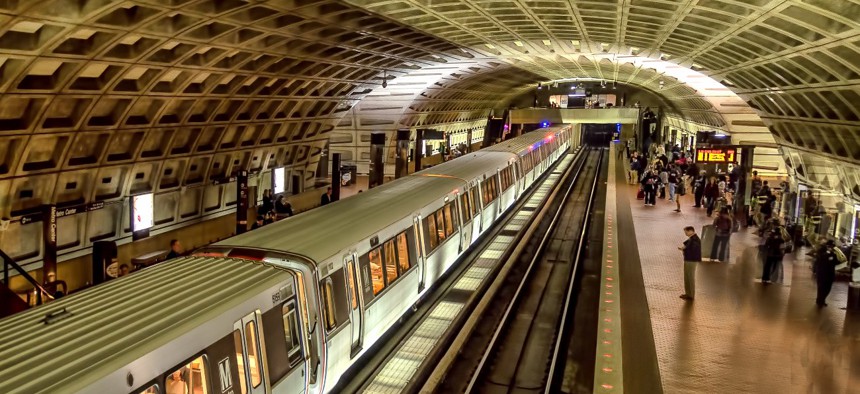
By Lux Blue / Shutterstock.com
Contractors Seek Clearer, Uniform Guidance for Returning to Offices
Lack of such guidance is a “huge hole” in the federal government’s pandemic response, industry group says.
A lead trade association would like federal agencies to issue uniform guidance for their contractors’ return to workplaces amid the ongoing coronavirus pandemic.
The approximate 4.1 million federal contractors play an integral role in the functioning of the government, but are often managed differently than the 2 million federal employees. After calling on the Trump administration to issue guidance regarding telework at the onset of the pandemic, the Professional Services Council, which represents over 400 companies that work with the federal government, now would like to see agencies issue some form of uniform guidance regarding returning to workplaces.
The Office of Management and Budget and Office of Personnel Management outlined in April how federal agencies should consider bringing employees back to offices, while noting it will vary based on the region. Although there have also been questions, confusion and concerns, individual agencies have been issuing their own reopening plans for their employees.
“The guidance needs to be clearer, it needs to be more uniform, it needs to be consistent and it needs to be visible, transparent,” David Berteau, PSC president and CEO, told Government Executive during an interview last week. “I think it's a huge hole in the government's response. They don't tend to think of contractors as part of an integrated workforce when they absolutely are.”
He said he hasn’t seen a “good example” of a federal agency that has issued guidance specific for contractors and in most cases they only say the decisions are left up to the individual contractors when asked.
Berteau acknowledged that there does need to be some flexibility depending on the companies’ locations and their specific needs, but it “could simply say, for instance, with respect to contractors, you know, ‘Don't make them come back to the office unless you need.’”
Robert Burton, partner with Crowell & Moring LLP and former deputy administrator and acting administrator of the Office of Federal Procurement Policy, agreed with PSC.
“I think it would be very helpful to have consistent guidance for all the contractors,” he said. “Uniformity or consistency would be really helpful to the contracting community as their workforces try to integrate with the federal workforces.”
When asked about the concerns from the contracting community, a spokesperson for the Labor Department, which houses the Office of Federal Contract Compliance Programs, gave the following statement to Government Executive.
“The [Labor] Department has issued overall guidance for all employees and contractors and has indicated that contractor employees should, whenever entering department facilities, follow the guidance that department employees follow, and followed up with a reminder to onsite contractors to wear face coverings in building common areas. Contractors are also required to take the department’s online course regarding the safe resumption of on-site work.”
The Homeland Security Department is one of the top agencies in terms of contract spending, according to Bloomberg Government’s annual report.
"Where return to the workplace is about returning to a federal government-owned or leased facility, the Department of Homeland Security has communicated with industry that decisions on contractor personnel returning to the workplace will be made at the contract or project level based on the nature of the work performed,” said DHS Chief Procurement Officer Soraya Correa. “DHS has been in regular communication with industry associations regarding the process of employees returning to the workplace and continues to engage in recurring discussions with industry to address their questions and concerns."
Another pressing topic is the Sept. 30 deadline to use CARES Act funds to reimburse contractors who could not access their worksites or telework during the pandemic. Both PSC and the National Defense Industrial Association, which represents defense contractors, would like the deadline to be extended.
“The process itself was severely delayed because of the complexity of the guidance published by DoD to inform contracting officers on how to process claims under the CARES Act…[which] shortened the time available for contractors to seek recourse and further impacted their cash flow,” said Corbin Evans, NDIA principal director for strategic programs. “September 30th is not going to be the end of the period where contractors are experiencing increased costs and leaving them with no avenue for recourse will compound an already complicated contracting environment.”
The House included an extension through December 11 in the continuing resolution to fund the government it introduced on Monday.
Despite the challenges, “by and large, the performance on the contracts is proceeding remarkably well under the circumstances…[and] the government has been by and large, much more flexible than was true before the pandemic,” Berteau said. “The reality is that the government is doing what it should be doing and it’s doing it pretty well and contractors are supporting them in every step of the way.”







